PLENARY SPEAKERS
________________________________________________________________________

Prof. Robert S. Langer
Massachusetts Institute of Technology, USA
He is an American chemical engineer, scientist, entrepreneur, inventor, and one of the twelve Institute Professors at the Massachusetts Institute of Technology. He was formerly the Germeshausen Professor of Chemical and Biomedical Engineering and maintains activity in the Department of Chemical Engineering and the Department of Biological Engineering at MIT. He is also a faculty member of the Harvard–MIT Program in Health Sciences and Technology and the Koch Institute for Integrative Cancer Research. Langer holds over 1,400 granted or pending patents. He is one of the world’s most highly cited researchers and his h-index is now 306 with currently over 381,489 citations. He is a widely recognized and cited researcher in biotechnology, especially in the fields of drug delivery systems and tissue engineering. He is the most cited engineer in history and 2nd most cited individual in any field, having authored over 1,500 scientific papers, and is also a prolific entrepreneur, having participated in the founding of over 40 biotechnology companies including Moderna. Langer’s research laboratory at MIT is the largest biomedical engineering lab in the world; maintaining over $10 million in annual grants and over 100 researchers. He has been awarded numerous leading prizes in recognition of his work.
________________________________________________________________________

Prof. Cato T. Laurencin
University of Connecticut, USA
He is currently the Chief Executive Officer of The Connecticut Convergence Institute for Translation in Regenerative Engineering. Dr. Laurencin is regarded as the founder of the field of Regenerative Engineering. He is the Editor-in-Chief of the journal Regenerative Engineering and Translational Medicine and Founder and president of the Regenerative Engineering Society. In engineering, medicine, science, and innovation, he is an elected member of the National Academy of Engineering, an elected member of the National Academy of Medicine, an elected member of the National Academy of Sciences, and an elected Fellow of the National Academy of Inventors. He is the first surgeon in history to be elected to all four academies. He is the first person to receive both the oldest/highest awards from the National Academy of Engineering (the Simon Ramo Founder’s Award) and the oldest/highest National Academy of Medicine (the Walsh McDermott Medal). In science, Dr. Laurencin received the Philip Hague Abelson Prize, the highest honor of the American Association for the Advancement of Science, for “signal contributions to the advancement of science in the United States” for his work in Regenerative Engineering. In innovation, Laurencin was awarded the National Medal of Technology and Innovation, America’s highest honor for technological advancement, awarded by President Barack Obama in ceremonies at the White House.
________________________________________________________________________

Prof. Kam W. Leong
Columbia University, USA
Leong’s research focuses on the development of innovative biomaterials for two major therapeutic applications: drug delivery and regenerative medicine. He uses polymeric biomaterials to deliver chemotherapeutics, DNA-based therapeutics, and cells for cancer therapy, gene therapy, immunotherapy, and cell therapy. He also uses tissue engineering principles and stem cell engineering to construct human tissue-on-a-chip for disease modeling and high-throughput drug screening. In cancer therapy, Leong collaborates with Dr. Tadao Ohno to develop a tumor vaccine comprising cytokines and tumor tissue fragments from the patients. It has been used to treat over 350 brain cancer patients in Japan. In nonviral gene therapy, Leong demonstrates the feasibility of using DNA nanoparticles to deliver FVIII and FIX genes orally to treat hemophilia in animal models. He has also developed nanomanufacturing techniques to produce DNA nanoparticles, a critical barrier in the eventual translation of nanomedicine. In regenerative medicine, Leong pioneers the application of DNA nanoparticles to convert adult cells from one cell type to another, raising the possibility of treating intractable neurodegenerative disorders via nonviral cell reprogramming. He has also recently developed nanoparticle-mediated genome editing technologies to delete harmful genes and correct genetic disorders. The work will impact precision medicine and the development of human tissue-on-a-chip for new drug development. Leong received a BS in chemical engineering from the University of California, Santa Barbara, and a PhD in chemical engineering from the University of Pennsylvania. He is a member of the National Academy of Engineering and the Editor-in-Chief of Biomaterials.
________________________________________________________________________

Prof. Mark Prausnitz
Georgia Institute of Technology, USA
Dr. Prausnitz and his colleagues carry out research on biophysical methods of drug delivery, which employ microneedles, ultrasound, lasers, electric fields, heat, convective forces and other physical means to control the transport of drugs, proteins, genes and vaccines into and within the body. A major area of focus involves the use of microneedle patches to administer vaccines to the skin in a painless, minimally invasive manner that improves vaccine effectiveness by targeting delivery to the skin’s immune cells. In collaboration with Emory University, the Centers for Disease Control and Prevention and other organizations, Dr. Prausnitz’s group is advancing microneedles from device design and fabrication through pharmaceutical formulation and preclinical animal studies through studies in human subjects. In addition to developing a self-administered influenza vaccine using microneedles, Dr. Prausnitz is translating microneedles technology especially to make vaccination in developing countries more effective.
KEYNOTE SPEAKERS
________________________________________________________________________

Prof. Xiang-Dong Edward Guo
Columbia University, USA
As director of Columbia’s Bone Bioengineering Laboratory, he and his team have two major research thrusts. The first focus of their research is developing innovative three-dimensional imaging and modeling techniques for bone microstructure, such as individual trabecula segmentation and plate-rod finite element modeling methods. These novel techniques have been widely used by engineers and clinicians in studying osteoporosis and other metabolic bone diseases. In addition, these techniques have revealed genetic traits in bone microstructure among various racial groups such as Chinese, Caucasians, and African Americans. They are currently assembling teams to study genetic variations in various ethnic groups across China and Asia. More recently, the individual trabecula segmentation technique has discovered early changes in bone microstructure in osteoarthritis, a major disease without therapeutic interventions. The second line of research of Guo’s group is mechanobiology of the skeleton. Using innovative single cell, in vitro, ex vivo, and in vivo approaches, they have developed innovative technologies to study cell responses to mechanical Loading and began to reveal the mystery of century old Wolff’s law.
________________________________________________________________________

Prof. Yadong Wang
Cornell University, USA
Yadong Wang obtained his Ph.D. degree at Stanford University in 1999, performed his postdoctoral studies at MIT, and joined the Georgia Institute of Technology in 2003 as an assistant professor. He was recruited to Pittsburgh in 2008. He has published high-impact articles at every stage of his academic career in journals including Science, Nature Biotechnology, Nature Medicine, and PNAS. Several of his inventions are licensed, one polymer he invented is now commercially available and approved for clinical use. He co-founded two companies to translate the technologies developed in his laboratory. His research focuses on creating biomaterials that will solve key challenges in the cardiovascular, nervous and musculoskeletal systems. His team enjoys collaboration with others who share the same passion for translational research.
________________________________________________________________________
 Prof. Thanh Duc Nguyen
Prof. Thanh Duc Nguyen
University of Connecticut, USA
Dr. Nguyen is an associate professor of Mechanical Engineering, joined with the Biomedical Engineering department at the University of Connecticut (UConn). His research is highly interdisciplinary and at the interface of biomedicine, materials and nano/micro technology. Specifically, his research focuses on the science and technology to transform biodegradable and biocompatible materials (e.g surgical-suture polymers and amino acids) into special forms, shapes, or structures with “smart” functions at nano/micro-scales for diverse applications in vaccine/drug delivery, regenerative engineering and electrical implants. He developed a platform technology, so-called SEAL (StampEd Assembly of polymer Layer) to create 3-dimensional microstructures of biodegradable polymers and advanced the SEAL method to create a novel single-administration self-boosting skin microneedle patch. This single-administration microneedle platform can be programmed to repeatedly deliver not only vaccines but also other therapeutics like antibodies and diabetic/pain drugs, thus avoiding all painful and inconvenient injections in the traditional vaccination and drug administration methods. Besides the microneedle technology, his research group at UConn has extensively studied biodegradable piezoelectric materials, derived from safe medical polymers and natural amino acids, to develop novel biodegradable implanted force-sensor and ultrasound transducer for monitoring vital intra-organ pressures and delivering medicines through the blood-brain barrier, respectively. The biodegradable piezoelectric materials were also used as a tissue scaffold which can be remotely activated to produce electrical cues for stimulating tissue regeneration. Dr. Nguyen’s works have been published in prestigious journals including Science, Science Translational medicine, Nature Nanotechnology, Nature Communication, Advanced Materials, PNAS etc. and highlighted in major media such as The New York Times, BBC News, the Guardian, NIH research matter etc. He received several awards including the Young Investigator Award from the journal of Biomaterials (2022), ACell Young Investigator Award (2020), MIT top innovator under 35 for Asia Pacific (2019), NIH Trailblazer Award for Young and Early Investigators (2018), SPIE Rising Researcher Award (2019), Young Investigator Award in Biosciences and Bioengineering of Applied Sciences (2019), and the SME Outstanding Young Manufacturing Engineer Award (2018) etc.
________________________________________________________________________

Prof. Levente Kovács
Óbuda University, Hungaria
Prof. Dr. Habil. Levente Kovács graduated in electrical engineering from the Technical University of Timisoara in 2000 and received his MSc in public health engineering from the Budapest University of Technology and Economics (BME) in 2011. He received his PhD in 2008, also from BME. His research interests are mainly in the areas of modern control theory and physiological regulation, where he has published more than 450 international journal articles and refereed international conference papers. His cumulative impact factor is above 100, his h-index is 24. Currently, since 2019, he is the Rector of Óbuda University, formerly Deputy Rector for Education, and Professor at the Faculty of Computer Science of Neumann János. He habilitated in 2013 with excellent results. He is a regular member of the Doctoral School of Applied Informatics and Applied Mathematics and of the University Doctoral and Habilitation Council, and head of the Knowledge Centre for Life Science Controls. He is also a member of the Biomedical Panel (TC 8.2) and the Control Engineering Education Panel (TC 9.4) of the International Federation for Automation (IFAC) and since 2010 of the Hungarian Diabetes Society. In 2015 he was the winner of the ERC StG, the most competitive research grant in the EU.
________________________________________________________________________

Prof. HO BA THO Marie-Christine
Université de Technologie de Compiègne, France
Marie-Christine Ho Ba Tho is Full Professor in Mechanics since 1998 at UTC (Université de Technologie de Compiègne) and currently Director of Research, before she was the head of the Biomechanics and Bioengineering Laboratory associated with CNRS (Centre National de la Recherche Scientifique) (2008-2017). She received a Master in Physics in 1985, Post Diploma in Radiological Physics in 1986 and PhD in Biomechanics in 1989 from Université Paul Sabatier (UPS) at Toulouse, France. She moved to Texas Scottish Rite Hospital for Crippled Children (Dallas, Texas) as a postdoctoral fellow until 1992 and returned to France at the INSERM (National Institute of Health and Medical Research) U305 laboratory at Toulouse, with an INSERM researcher position until 1998. Her research interest concerns Biomechanics of the musculoskeletal system especially children, adult bone and joints deformities. She was pionnier in the development of numerical models with individualized mechanical and geometrical properties derived from medical images and the multiscale characterization of the musculo-skeletal system (organ, tissue, cellular and molecular levels). Most of her research are performed in collaboration with national and international companies and clinicians. Recently her work is focused in the modelling of uncertainties of the biomechanics data and their propagation in the development of medical computer aided system diagnosis. She served as a council member of the ESB (European Society of Biomechanics) 1996-2004 and was vice president (2000-04). She was a member of the World Council for Biomechanics from 2006-2018. She was vice President of Board of Directors of UTC (Vice Rector) from 2009-2011. She served as an expert at the National Council of Scientific Research (CNRS), 2002-2008. She was nominated at the Scientific Board at the Institute for Engineering and Systems Sciences (INSIS) of CNRS from 2010-2014. She is participating as an expert and committe evaluation member in the National Agency of Education and Research Evaluation (AERES, HCERES) and National Agency of Research (ANR) and international funding agencies NSERC (Canada), FNRS (Belgium), FNS (Switzerland), BMBF (Germany) and European Programs. She plays an expert role for the public investment bank BPIFRANCE a french finance and business development for companies development. She enters in the National Order of the Legion of Honor with the grade of «Chevalier de la Légion d’Honneur» (Knight of the Legion of Honour) (July 2017).
________________________________________________________________________
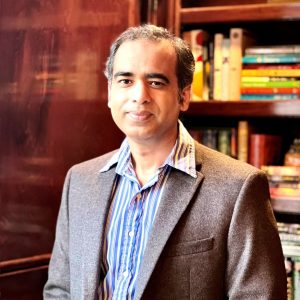
Prof. Ankur Singh
Georgia Institute of Technology, USA
Ankur Singh is a Woodruff Faculty Fellow and Professor with a joint appointment in George W. Woodruff School of Mechanical Engineering at Georgia Institute of Technology and Wallace H. Coulter Department of Biomedical Engineering at Georgia Tech and Emory University. Before Georgia Tech, he was a tenured Associate Professor at Cornell University. His laboratory develops immune organoids and enabling technologies to understand healthy and diseased immune cells and translate therapeutics. He has received funding from the National Institute of Health, National Science Foundation, Wellcome Leap HOPE, Department of Defense, Defense Threat Reduction Agency, the Curci Foundation, and Lymphoma and Leukemia Society. He has published >65 articles in peer-reviewed journals, including Nature Methods, Nature Materials, Nature Nanotechnology, Nature Immunology, Nature Communications, Nature Reviews Materials, Nature Protocols, Science Advances, Cell Reports, PNAS, Blood, and Advanced Materials. He has written multiple editorials for Science Translational Medicine. He is a recipient of the NSF CAREER, Society for Biomaterials Young Investigator Award, CMBE Young Innovator Award, CMBE Rising Star Award, 3M Faculty Award, DoD Career award, Cornell’s Teaching Excellence Award, and Cornell’s Research Excellence Award. His immune organoids were identified among the Top 100 Discoveries of 2015 by Discover Magazine. He is the Founder and past Chair of the Immune Engineering SIG at the Society for Biomaterials and Controlled Release Society. He currently serves as the Associate Editor for Science Advances, Biomaterials, and Cellular and Molecular Bioengineering. He serves on the Executive Advisory Board of Advanced NanoBiomed Research journal and on the editor boards of Scientific Reports, Current Opinion in Biomedical Engineering, and J of Immunology and Regenerative Medicine journals.
________________________________________________________________________

Prof. Phan Toan Thang
National University of Singapore, Singapore
Dr. Phan is a founding director and CSO of CellResearch Corporation Group of Companies. A graduate of the Military Medical University, Hanoi, Vietnam in 1991, Prof. Phan Toan Thang has had a strong interest in wound healing since the earliest days of his medical and scientific career. His interest led him to hands-on experience during his four-year surgical residency in Hanoi at the National Institute of Burns and at the Army Hospital 103. Prof. Phan’s commitment and excellence in laboratory research was proven when he spent two years at the prestigious Wound Healing Institute and Department of Dermatology in Oxford, England. Prof. Phan is author of more than 80 publications in international peer-reviewed journals, two book chapters, has more than 35 granted patents and serves as a reviewer for prestigious international scientific journals as well as local and international research funding bodies. His recent innovative research work is the discovery of a novel source of stem cells from the umbilical cord lining membrane with translational potential for regenerative medicine, tissue engineering and cell-based therapy.
INVITED SPEAKERS
_______________________________________________________________________
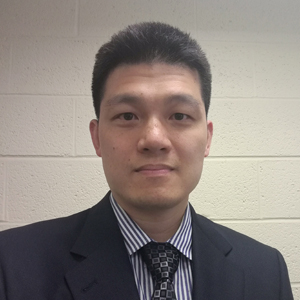
Prof. Bin Feng
University of Connecticut, USA
Dr. Feng’s research is focused on the sensory encoding and processing of the peripheral nervous system. Particular interests are given to 1) how the sensory afferent neurons detect and transmit pain-related sensory information, 2) the peripheral mechanisms that underlie the sensory aberrations in chronic pain and 3) translating scientific discoveries into next-generation neuromodulatory strategies and devices that target peripheral nerves/neurons for the better management of chronic pain. A multidisciplinary approach has been taken including ex vivo and in vitro electrophysiological recordings and stimulations, molecular biology and transcriptome analyses, nerve-electrode interface via micro-electromechanical systems (MEMS), optogenetics, biomechanics at the nerve–tissue interface, and together with rigorous computational simulations of neural encoding and tissue biomechanics.
________________________________________________________________________

Prof. Xu Chenjie
City University of Hong Kong, China
Dr. Xu is dedicated to developing novel engineering solutions for addressing the unmet in the field of medicine. Specifically, he focuses on the application of nanotechnology to medicine (or nanomedicine), which has potentials for shifting paradigms in medicine encompassing diagnosis, imaging, surgery, and drug administration. In the past 10 years, the key innovations stemming from the laboratory include microneedle-based skin patches and nucleic acid-based nanoparticles (molecular beacon, Spherical Nucleic Acids, and DNA origami) for the delivery of sensors and therapeutics. He has published more than 100 scientific articles with >10,000 citations and an H-index of 41 (by Dec 8th, 2019). He also filed 10 patent applications and edited two books.
________________________________________________________________________
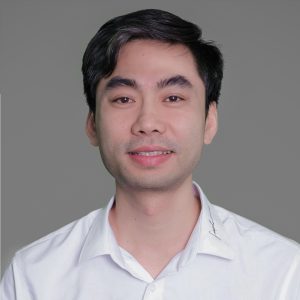
Dr. Nam Sy Vo
GeneStory & Vingroup Big Data Institute, Vietnam
Dr. Nam Sy Vo is the Chief Scientific Officer & Co-Founder at GeneStory JSC, Director of the Center for Biomedical Informatics at Vingroup Big Data Institute, and an Affiliate Faculty at VinUniversity. Previously, he worked as a Senior Bioinformatics Scientist at The University of Chicago after training as a Postdoctoral Fellow at The University of Texas MD Anderson Cancer Center and obtaining a PhD in Computer Science from The University of Memphis, all in USA. Dr. Vo’s research interests focus on analysis and interpretation of large-scale biomedical data. In general, he is interested in applying Data Science and Machine Learning in computational biology and medicine. Dr. Vo is currently leading the 1000 Vietnamese Genomes Project and various projects towards understanding disease risk and adverse drug reaction in Vietnamese population. His is also building several platforms for managing, analyzing, and sharing large-scale biomedical datasets. His work has been applied to analyzing world’s largest genomic datasets, such as The Cancer Genome Atlas (TCGA), and published in prestigious journals such as Immunity (Cell). Several of his methods and tools have been patented and commercialized for clinical use in the largest hospitals in Vietnam through the company GeneStory, which he co-founded. His work helps implement precision medicine in health care in Vietnam and around the world.
________________________________________________________________________
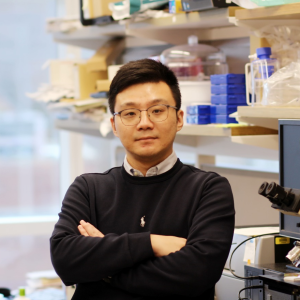
Prof. Liu Yang
Peking University School of Stomatology, China
Dr. Yang Liu is currently an assistant professor at Peking University School and Hospital of Stomatology. He received his bachelor’s degree from Harbin Engineering University (2013) and PhD from Peking University (2019). He did his postdoc with Prof. Thanh D. Nguyen at University of Connecticut. His research is focused on biodegradable materials used for regenerative engineering. He has published 28 papers in Science Translational Medicine, Science Advances, Advanced Functional Materials, etc. He was awarded Trainee Award by Chinese Association for Biomaterials (CAB, 2022) and selected as the finalist of MIT TR35 Asian Pacific (2022). His work has been widely recognized by top researchers in Cell, Nature Reviews Materials, Nature Reviews Rheumatology, and reported by more than 30 authorities and media.
________________________________________________________________________
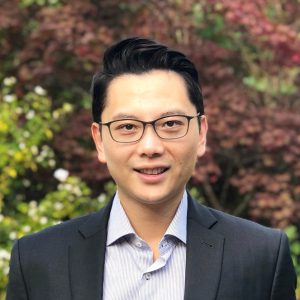
Prof. Yupeng Chen
University of Connecticut, USA
Dr. Yupeng Chen is an Associate Professor in the Department of Biomedical Engineering at the University of Connecticut. He received his M.Sc. and Ph.D. in biomedical engineering and chemistry at Brown University. Prof. Chen has a long-term interest in designing and developing DNA-inspired Janus base nanomaterials (JBNs) for biomedical applications. His work has published as a series of high-impact papers, and US and international patents which have been successfully licensed to industry. Prof. Chen serves as the Principal Investigator of many competitive research grants from NIH, NSF and DOD. He is an awardee of the Grand Prize (top one among 545 worldwide candidates) of New Investigator Recognition Award in Orthopaedic Research Society in 2013, and the Faculty Early Career Development (CAREER) award from National Science Foundation (one of the most prestige awards for young faculty). Most recently, Dr. Chen’s tissue engineering technology was selected to be used on the International Space Station to overcome the impact of microgravity in space.
________________________________________________________________________
 Dr. Dang Thuy Tram
Dr. Dang Thuy Tram
Nanyang Technological University, Singapore
Dr. Dang Thuy Tram joined the School of Chemical and Biomedical Engineering in January 2016. Prof Dang is currently an Associate Editor of the journal of Drug Delivery and Translational Research (IF 3.111) and a fellow of NTU’s Aging Research Institute for Society and Education (ARISE). Professor Dang received a bachelor degree from the University of Illinois, Urbana-Champaign and a PhD degree (Advisors: Robert Langer and Daniel Anderson) from Massachusetts Institute of Technology, both in Chemical Engineering. Professor Dang also conducted postdoctoral training as a Controlled Release Society fellow at Brigham and Women’s Hospital, Harvard Medical School. Prior to joining NTU, Professor Dang was a Senior Research Fellow at the Institute of Medical Biology, A*STAR Singapore.
________________________________________________________________________
 Dr. Thien Nguyen
Dr. Thien Nguyen
National Institutes of Health, USA
Dr. Nguyen received her bachelor’s degree from Hanoi University of Science and Technology, Vietnam in 2013 and Master and PhD degrees from Gwangju Institute of Science and Technology, South Korea. Currently, she is working as a researcher at National Institutes of Health, USA. Her research focuses on translational applications of optics. Dr. Nguyen has developed multiple medical devices and algorithms to monitor general and pregnancy health. In addition, she has been using commercial devices, including functional near-infrared spectroscopy (NIRS) and electroencephalography (EEG) to measure neuronal activity in a broad age range from children to elderly and in various health conditions during different cognitive stages. Dr. Nguyen has more than 20 papers published in peer-reviewed journals, 30 presentations in international conferences, 2 patents applications in USA, and 1 patent in South Korea. She has also received multiple grants and fellowships in Vietnam, South Korea, and USA.
________________________________________________________________________
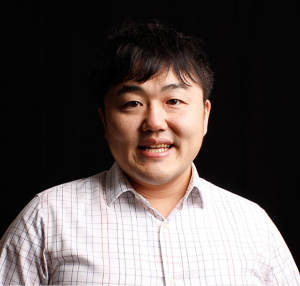
Dr. Michinao Hashimoto
Singapore University of Technology and Design, Singapore
Dr. Michinao Hashimoto is the principal investigator of the group. His overarching research theme is microfluidics, both fundamentals and applications. Ongoing research topics include multiphase microfluidics, biomaterials formation, drug delivery, and development of medical and diagnostic devices. He is also interested in reducing the cost of science and technology, and making them accessible to broader range of people. Along this line, his research interest is on low-cost device fabrication and their application in point-of-care setting. Michinao enjoys traveling around, learning new languages, and doing science. To date, he has served as visiting scholars at multiple international institutions, including Polish Academy of Science (Poland), University of Sao Paulo (Brazil), National Tsinghua University (Taiwan), the University of Tokyo (Japan), and Saudi Aramco (Saudi Arabia). Michinao received his B.S. degrees in Chemistry and Biochemistry/Biophysics from Oregon State University (2003), and Ph.D. degree from Harvard University (2009) under the guidance of Prof. George Whitesides. Prior to joining SUTD, he completed his postdoctoral training at MIT and Children’s Hospital Boston under the guidance of Prof. Daniel Kohane and Prof. Robert Langer.
________________________________________________________________________
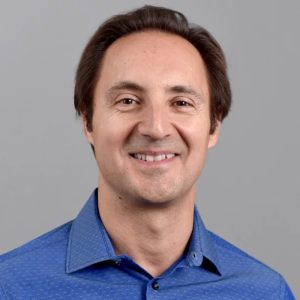 Dr. Marco Santello
Dr. Marco Santello
Arizona State University, USA
Marco Santelloreceived a Bachelor in Kinesiology from the University of L’Aquila, Italy, in 1990 and a Doctoral degree in Sport and Exercise Science from the University of Birmingham (U.K.) in 1995. After a post-doctoral fellowship at the Department of Physiology (now Neuroscience) at the University of Minnesota, he joined the Department of Kinesiology at Arizona State University (ASU) (1999-2010). He is the Fulton Professor of Neural Engineering and served as the Harrington Endowed Chair and Director of the School of Biological and Health Systems Engineering from 2012 to 2022. He is the Fulton Professor of Neural Engineering, ASU Site Director of the NSF Industry/University Cooperative Research Center BRAIN, and the Director of the Science and Technology Center in Human Performance. His main research interests are human performance, motor control and learning, haptics, and rehabilitation engineering. His Neural Control of Movement laboratory uses complementary research approaches, ranging from non-invasive neuromodulation to motion tracking, electromyography, electroencephalography, and virtual reality environments. His work has been published in neuroscience and engineering journals, and he has been supported by the National Institutes of Health, the National Science Foundation, DARPA, the Whitaker Foundation, The Mayo Clinic, and Google. He has served as grant reviewer for US and European funding agencies, Associate Editor for Neuroscience and Biomedical Engineering, and member of the Editorial Board of the Journal of Assistive, Rehabilitative and Therapeutic Technologies. He is a member of the Society for Neuroscience, the Society of Neural Control of Movement, and IEEE.
________________________________________________________________________
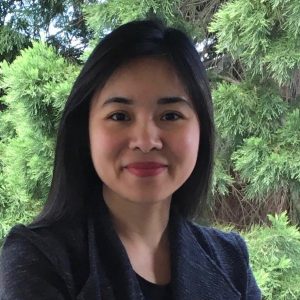
Dr. Thuy Ngo
Oregon Health & Science University, USA
Dr. Ngo is an Associate Professor in Molecular and Medical Genetics and Biomedical Engineering at Oregon Health and Science University and a member of the Knight Cancer Institute’s Cancer Early Detection Advanced Research Center (CEDAR). She received undergrad training in Engineering Physics at Hanoi University of Technology and Ph.D. in Biophysics and Computational Biology from the University of Illinois at Urbana-Champaign under the advisory of Dr. Taekjip Ha. She completed postdoctoral training in Dr. Stephen Quake’s laboratory at Stanford University in 2017. Dr. Ngo is interested in technologies and basic mechanisms for diagnosis, precision selection of therapy, and treatment assessment by maximizing the high information content of cell-free RNA, cell-free DNA, and extracellular vesicles in body fluids. She has published research articles across disciplines in high-impact journals such as Science, Nature, and Cell. Her work in diagnostic technologies has led to multiple patent applications and licenses and was selected as Top 10 Breakthrough Technologies 2019 by MIT Technology Review. Her findings have been well-received by the academic community, which has led to a broad audience by multiple media outlets such as NYTimes, CNN, BBC, TIME Magazine, and ABC News.
________________________________________________________________________
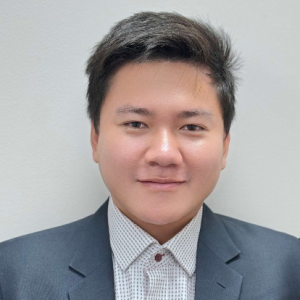
Dr. Phat Kim Huynh
University of South Florida, USA
Dr. Phat K. Huynh is currently a post-doctoral researcher in Industrial and Management Systems Engineering Department from the University of South Florida (USF). He has a rich academic background with a Bachelor’s in Biomedical Engineering and a Master’s in Industrial Engineering. He completed his Ph.D. in Industrial Engineering at USF with a focus on domain-informed sensor-based data-driven modeling, AI systems for health monitoring, and robust control strategies for nonlinear dynamics. He has published extensively in prestigious peer-reviewed journals like Artificial Intelligence in Medicine, IISE Transactions on Healthcare Systems Engineering, Journal of Biomechanical Engineering, PLOS ONE, and IEEE Journal of Biomedical and Health Informatics. His work has been recognized with awards like the IISE Quality Control and Reliability Engineering Division William A. Golomski Award and Doug Ogden Award from Society of Reliability Engineers (SRE) for several best technical papers, and he has been a prolific contributor to scientific conference proceedings and patent applications.


